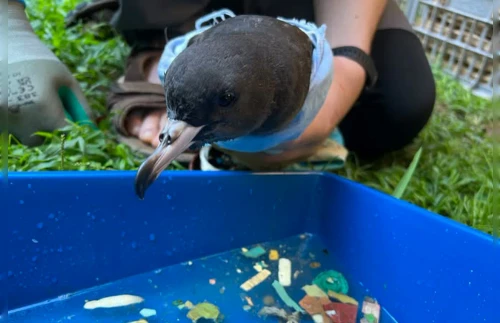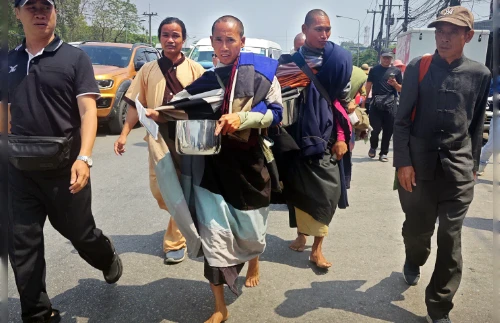
Russia is pushing ahead with its domestically produced Sputnik V vaccine as the global race for a safe and effective vaccine that can put an end to the coronavirus pandemic heats up.
Hours after Pfizer-BioNTech made headlines Wednesday by winning the first official general-use vaccine approval in the western world, President Vladimir Putin ordered large-scale vaccination with Sputnik V to start in Russia late next week.
On Thursday, Moscow Mayor Sergei Sobyanin announced that mass vaccination of high-risk groups would start in the capital this Friday.
As Russia moves forward with its mass vaccination drive, many people inside and outside the country remain skeptical, with polls showing distrust toward Russian-made coronavirus vaccines among both Russian medics and the general population.
Here are the top five things to know about the Sputnik V vaccine:
Q: How does it work?
A: Sputnik V is a two-part adenovirus-based vector vaccine.
Q: How does it work?
A: Sputnik V is a two-part adenovirus-based vector vaccine.
A vector is an engineered virus lacking a gene for reproduction. Once injected into the human body, the vector containing the coronavirus gene is supposed to provoke the production of coronavirus spike proteins without actually infecting the body, therefore building immunity to the virus.
The first Sputnik V shot uses adenovirus 26 as the vector for the coronavirus surface protein, called spike, while the second uses adenovirus 5.
Western vaccine developers such as CanSino Biologics, the University of Oxford and Johnson & Johnson have used adenoviral vector technology for their Covid-19 vaccines.
“Many other vaccine candidates against Covid-19 are also based on adenoviral vectors, but so far none are using the two-vector vaccination system created at Gamaleya,” the vaccine’s official website says.
Q: Is it safe and effective?
A: Sputnik V’s developers announced the vaccine’s 95% efficacy last week, citing interim clinical trial data obtained 42 days after volunteers received the first dose.
“There were no unexpected adverse events during the trials. Monitoring of the participants is ongoing,” the Sputnik V website says.
According to its developers, Sputnik V’s side effects include a fever of 38 degrees Celsius, headaches and muscle pain and affect about 15% of recipients.
The vaccine’s safety and efficacy have drawn concern from critics in Russia and abroad. In September, scientists from several countries signed a note of concern over possible data manipulation and statistical anomalies in its Phase 1/2 data published in The Lancet. The developers defended their research saying that the methods they used to obtain measurements give only rough values, not exact numbers.
Q: When will vaccinations start?
A: President Vladimir Putin has ordered large-scale vaccination to start across the country next week while mass vaccination in Moscow is set to start as soon as this weekend. The announcement came shortly after Pfizer-BioNTech won general-use approval for its vaccine in Britain. High-priority groups such as teachers, doctors and social workers will be first in line to get the vaccine. Putin said Russia 2 million vaccine doses have either already been produced or will be manufactured in the coming days.
Over 100,000 people have already been vaccinated with Sputnik V, Health Minister Mikhail Murashko said Thursday, and more than 7,000 military personnel have received the jab. Authorities have stressed that vaccination is voluntary.
Reports last month said Russia was struggling with production capacity issues and problems with scalability and quality control.
Q: How much does it cost?
A: The vaccine is free inside Russia and won’t cost more than $10 internationally compared with its more expensive western counterparts. The Pfizer-BioNTech vaccine has set its initial price at $19.50 a dose, or $39 overall since two doses are required.
Q: Who developed the vaccine?
A: The vaccine was developed by the Gamaleya National Center of Epidemiology and Microbiology in Moscow, a state-run research center. Gamaleya produced the vaccine with support from the Russian Direct Investment Fund.
“Scientists from Gamaleya have been working with adenovirus vector vaccines since the 1980s and have become world leaders in the development of this kind of vaccine,” the official website for the vaccine says.
This story was originally published by The Moscow Times Reprinted with the permission of The Moscow Times @Stichting 20 Oktober all rights reserved
Some Cyber Security Softwares
UN Security Council Meets on Situation in Middle East, Including Palestinian Question
Remote Island’s Brain-Damaged Seabirds Show Far-Reaching Impact of Plastic Pollution
New Zealand Police Stopped Naked Driver
Dog Stories
They Are Not Journalists But Propagandists
Cryptojacking
Chinese Man Who Displayed Pro-Democracy Banners in Detention:Sources
Subscribe Our You Tube Channel
Fighting Fake News
Fighting Lies


















